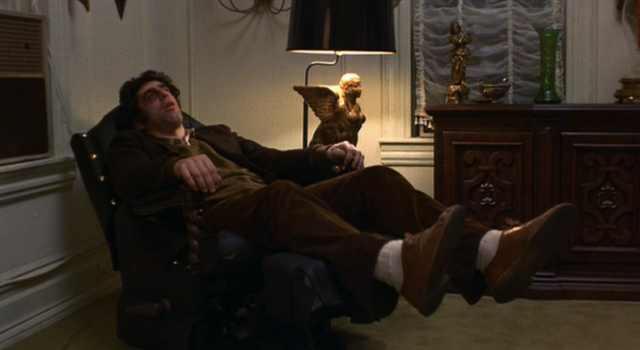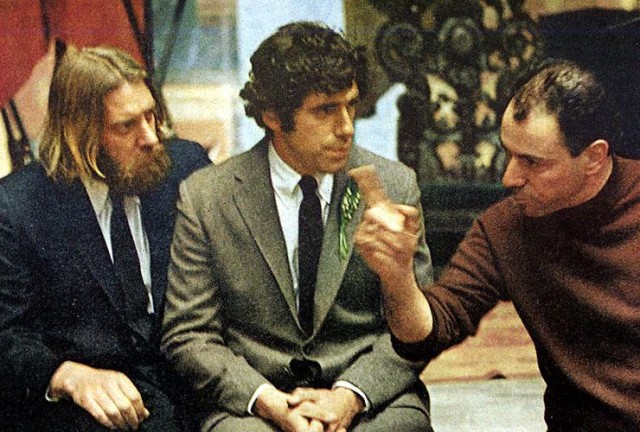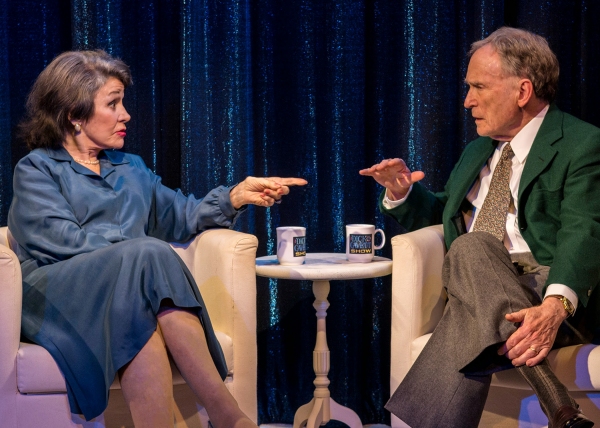LITTLE MURDERS (Alan Arkin, 1971)
Film Forum
209 West Houston St.
Thursday, January 31, 4:20
Friday, February 1 2:40, 7:00
Series runs through February 14
212-727-8110
filmforum.org
 Alan Arkin’s directorial debut is a hysterically absurdist foray into the urban paranoia that haunted a lawless New York City in the late 1960s and 1970s. Based on Jules Feiffer’s first play, which was a Broadway flop in 1969 but became a hit in London and off Broadway, Little Murders centers on the offbeat relationship between the determined and domineering Patsy Newquist (Marcia Rodd) and the calm, easygoing Alfred Chamberlain (Elliott Gould). They first meet when Patsy tries to save him from getting beaten up yet again by a group of thugs, but he doesn’t want any help; he never fights back, instead letting them tire themselves out. A former successful commercial photographer, Alfred now spends his time taking artistic pictures of feces he finds on the filthy streets. He and Patsy sort of start dating, but Alfred, who regularly says, “I don’t know what love is,” is too passive for Patsy, who makes it her project to mold him into a stronger man, as if he were one of her interior design projects. The black comedy reaches new heights when Alfred meets Patsy’s rather eccentric family, played by the three actors who originated the roles on the stage. Vincent Gardenia is her high-strung father who laments what has become of the city, Elizabeth Wilson is her prim and proper mother who only sees what she wants to see, and Jon Korkes is deliciously funny as her crazy brother, who finds humor in just about everything. Meanwhile, wherever Patsy goes, a heavy-breathing phone caller follows.
Alan Arkin’s directorial debut is a hysterically absurdist foray into the urban paranoia that haunted a lawless New York City in the late 1960s and 1970s. Based on Jules Feiffer’s first play, which was a Broadway flop in 1969 but became a hit in London and off Broadway, Little Murders centers on the offbeat relationship between the determined and domineering Patsy Newquist (Marcia Rodd) and the calm, easygoing Alfred Chamberlain (Elliott Gould). They first meet when Patsy tries to save him from getting beaten up yet again by a group of thugs, but he doesn’t want any help; he never fights back, instead letting them tire themselves out. A former successful commercial photographer, Alfred now spends his time taking artistic pictures of feces he finds on the filthy streets. He and Patsy sort of start dating, but Alfred, who regularly says, “I don’t know what love is,” is too passive for Patsy, who makes it her project to mold him into a stronger man, as if he were one of her interior design projects. The black comedy reaches new heights when Alfred meets Patsy’s rather eccentric family, played by the three actors who originated the roles on the stage. Vincent Gardenia is her high-strung father who laments what has become of the city, Elizabeth Wilson is her prim and proper mother who only sees what she wants to see, and Jon Korkes is deliciously funny as her crazy brother, who finds humor in just about everything. Meanwhile, wherever Patsy goes, a heavy-breathing phone caller follows.
Little Murders is one of the great unsung films of the 1970s, a wickedly funny, at times manic examination of love, fear, family, faith, and violence. The story is highlighted by several riotous monologues about the state of the world, including an epic rant delivered by Lou Jacobi as an angry judge and an oddball hippie speech by Donald Sutherland (Gould’s M*A*S*H costar) as an alternative minister. Arkin also appears as Lt. Practice, a cop stuttering about how many unsolved murders there have been in the past six months. The film is shot in a beautifully subdued, lurid palette by Gordon Willis, who photographed such other seminal New York–set ’70s pics as The Landlord, Klute, The Godfather I and II, Annie Hall, and Manhattan. A genuine underground cult classic, Little Murders is screening January 31 and February 1 in the Film Forum series “Far-Out in the 70s: A New Wave of Comedy, 1969–1979,” which continues through February 14 with such other period comedies as Hal Ashby’s Being There, Milos Forman’s Taking Off, a double feature of Art Carney in The Late Show and Harry and Tonto, and Brian De Palma’s Hi, Mom! in addition to The Landlord and a double feature of Annie Hall and Manhattan.



